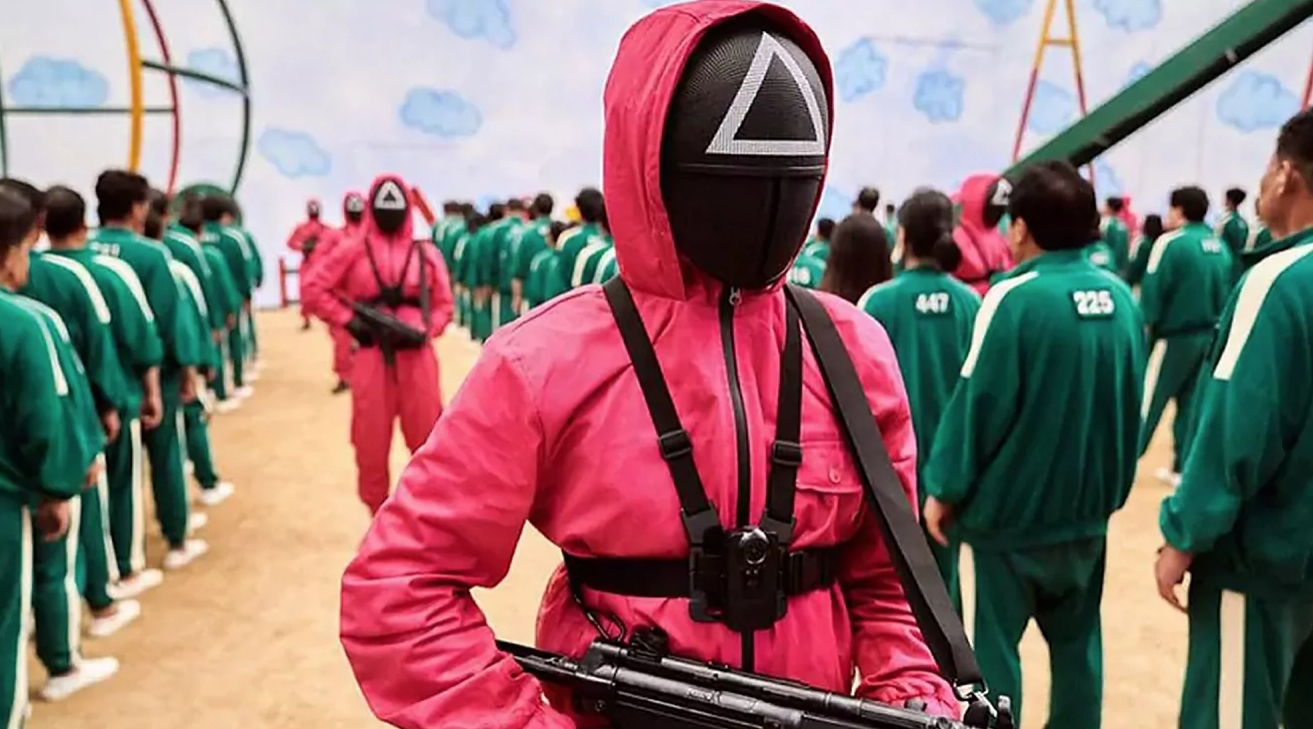“Squid Game” Shows Americans Want More Diverse Asian Representation

“Squid Game” (2021, Hwang Dong-hyuk) is a Netflix original series that has recently taken the world by storm, and for good reason. A brilliantly creative narrative mixed with compelling characterization and breathtaking cinematography boosts this series to a must watch. The public agrees. Currently, the show has been viewed by 111 million different households, becoming Netflix’s number one streamed show on the platform, beating out “Bridgerton” (2020, Julie Anne Robinson). The first season is nine episodes at just under an hour each.
“Squid Game” takes place partly in South Korea, and partly on an undisclosed island presumed to be a small island off the coast of the Korean Peninsula. The story follows Seong Gi-Hun (Lee Jung-jae), a divorced father who is in debt with his local loan sharks and banks. After a chance encounter with a man who plays a game of Ddjaki with Seong Gi-Hun at the train station, he is suddenly given the opportunity to make enough money to solve all his problems by playing other similar games with 456 other contestants. Each game has their own simple rules, but fail and the players are literally eliminated.
One strength of the Netflix series is the characters have excellent chemistry together. Lee Jung-jae’s performance really makes you feel Seong Gi-Hun’s connection to his daughter, who he enters the game for in the first place. However, he also has personal relationships with many of the other contestants in the games, of which some old arguments finally resolve. Cho Sang-Woo (Park Hae Soo) was Seong Gi-Hun’s best friend in childhood, and as such, has a tremendous amount of conflict to deal with internally, all of which is beautifully portrayed on screen.
The games are interesting in themselves, but what may be even more interesting is the way that the characters react to being in a situation where elimination is not an option. Han Mi-Nyeo (Kim Joo-ryeong) is another interesting character to analyze, as she plays a popular trope in Korean media, although it’s been pointed out that this context is easily missed when watching the English dubbed version of the show, as some of the translations are embarrassingly off. Han Mi-Nyeo’s character is extremely watered down from the original Korean, replacing swear words with snarky comments in most cases.
Ali (Anupam Tripathi), a Pakistani migrant to South Korea, is another interesting character, simply because of his position. Entering the country and the game both to provide a better life for his family is one of the most interesting dynamics to see play within the show.
Kang Sae-byeok (Jung Ho-yeon) is probably most people’s favorite character from the show. She entered the game as a North Korean refugee to make a better life for her brother and her. Her determination to make her new life is simultaneously heartwarming and heartrending.
The cinematography of the show helps to tell the story in a much bigger way than most viewers may even realize. In fact, if viewers pay close attention to the show throughout, they can find that the games are all hidden in plain sight, and the players never once notice. The camerawork captures the grandiosity of the setting. The unique design of the hall between the game room and the dorm room is visually striking, the corridor being designed as a sort of maze of stairs that you would find in carnival fun houses. The island itself is picturesque and tropical, but also dark and foreboding. The environment is actively involved in the story, creating new dangers and situations for the characters to traverse.
Asian media it seems is really beginning to attract American audiences in new ways. Like we’ve seen with “Shang-Chi and The Legend of the Ten Rings” (2021, Destin Daniel Cretton), Americans seem to want more diverse Asian representation in film. And while Hollywood certainly has a long way to go, “Squid Game” provides yet another example of how compelling these stories can be.
“Squid Game” is a remarkable piece of media, and highly recommended to anyone who can watch it. The characters will keep viewers invested from the beginning, upside down, over and under, and through to the end as they have their minds and senses toyed with. Unlike many other shows to grace Netflix’s platform, this show is anything but ordinary. In fact, it might be one of the platform’s crowning achievements, sparking not just social media trends on TikTok, but a movement for more inclusive media overall.



